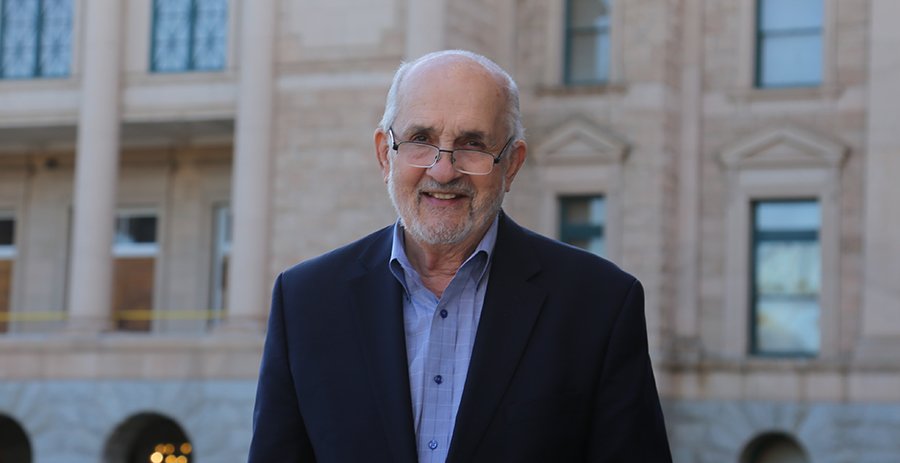Business
Chuck Essigs: Unlocking the Mysteries of School Finance Dollars

Chuck Essigs, a veteran in Arizona’s school finance landscape, continues to serve as an essential resource for lawmakers, lobbyists, and reporters. As the director of government relations for the Arizona Association of School Business Officials, he brings over 20 years of experience to the table. With another legislative session approaching, his mission remains clear: to tackle complex school finance questions head-on.
Essigs’s journey into school finance began in the Arizona Department of Education’s special education department. He initially assisted in reforming funding formulas first implemented in 1980. This role catapulted him into broader school finance initiatives, eventually leading to his position as director of school finance and a lengthy tenure as the assistant superintendent for business services in the Mesa School District. His transition from special education to finance stemmed from a realization: without adequate funding, vital educational programs risk extinction.
He emphasizes the significance of aligning funding with district goals. “If they don’t fund it, or can’t fund it, then those programs are at risk,” he notes. For Essigs, effective budgeting ensures that the educational needs mandated by law and those prioritized by the community are met.
In an ever-tightening budget environment, open communication is paramount. “We would always meet in January with our teachers and staff to explain how much funding we’re going to have,” he recounts. Ensuring the community understands the funding formula is critical for cohesive decision-making.
Essigs highlights misconceptions surrounding school budgeting. Many assume districts can arbitrarily increase funding, but he explains that budgetary limits are dictated by state formulas. “It’s not a decision by districts,” he asserts, stressing that legislative action is often required to amend funding structures.
Changes in the legislative landscape over the years haven’t altered his core responsibilities. He remains focused on providing legislators with the data they need, although he acknowledges increased polarization within discussions. Reflecting on Proposition 123—a significant funding initiative—Essigs notes that ongoing adjustments are necessary. “You need to have something permanent in place,” he argues, advocating for a shift toward more permanent solutions rather than temporary fixes.
As legislative discussions evolve, Essigs believes there’s potential for enhanced funding opportunities, especially from the state land trust. “Maybe as part of the renewal of Prop. 123, we should look at utilizing those resources more effectively,” he suggests.
When explaining complex financial concepts to newcomers, he prioritizes understanding. Essigs adeptly addresses questions from legislators, acknowledging that education is just one of many pressing issues they face during sessions. His approach combines clarity with honesty, ensuring that lawmakers get a comprehensive view of the challenges at hand.
Despite challenges, he maintains a positive outlook on his work. “If you feel that the message you provide was used in decision-making, you feel good about it,” he shares. Reflecting on past sessions, he recognizes that outcomes can vary, and learning from each experience is essential.
As he anticipates future sessions, Essigs remains enthusiastic about his role. Although retirement is an option, his passion for the field keeps him engaged. “There are some things, like teacher salaries, where we all want to find solutions that allow for increases,” he states, aiming for improved compensation for educators.
Ultimately, what brings him joy in his position is problem-solving. “You feel good when you know that someone had a question, and you were able to answer it,” he concludes. With a personal motto to treat others with respect, Essigs strives to make meaningful contributions to Arizona’s educational finance landscape.


















